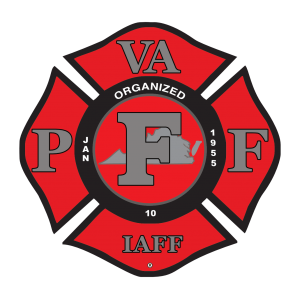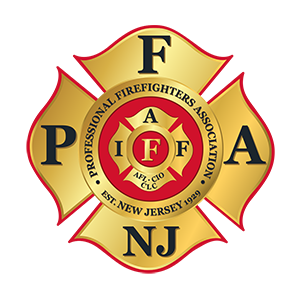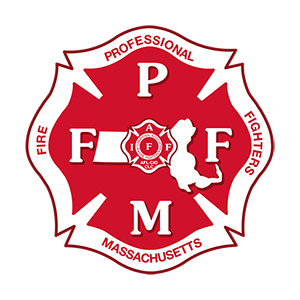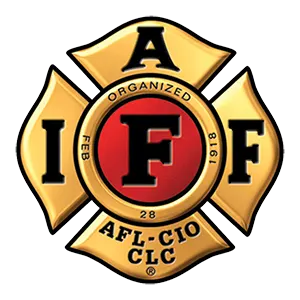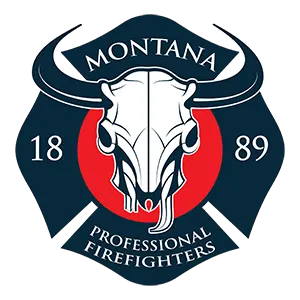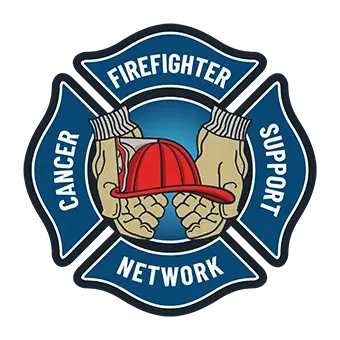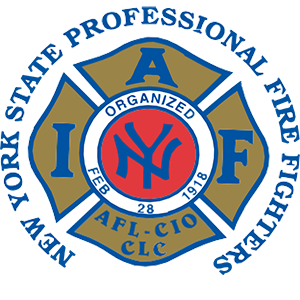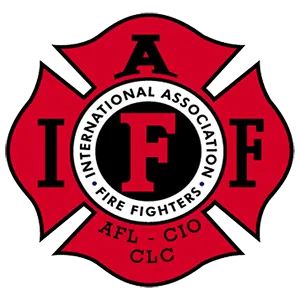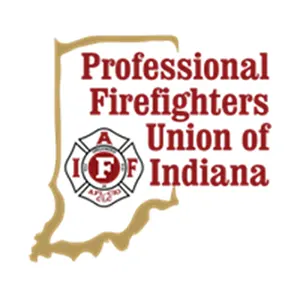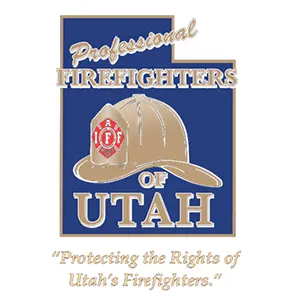NFPA 1582
Our NFPA 1582 Physical/Wellness Program assesses firefighter health and fitness through a range of tests, including hearing and eyesight evaluations, pulmonary function tests, cardio-pulmonary assessments, comprehensive blood analyses, chest and lung X-rays with radiologist review, and stress tests with echocardiograms.
Guide To The NFPA 1582 Annual Physical
Firefighting is a hazardous profession, and firefighters face numerous risks on the job, including exposure to fire, smoke, toxic chemicals, and physical trauma. While many of these risks are unavoidable, fire departments can take steps to minimize the risk of injury and illness among their firefighters by implementing comprehensive occupational medical programs. The National Fire Protection Association (NFPA) developed NFPA 1582, a standard that outlines the minimum requirements for occupational medical programs for firefighters. This guide provides a comprehensive overview of NFPA 1582, including its purpose, requirements, and benefits.
Purpose of NFPA 1582
The purpose of NFPA 1582 is to establish minimum requirements for comprehensive occupational medical programs for fire departments. The standard provides guidance on medical evaluations, medical surveillance, and medical recordkeeping for firefighters. By adhering to the standard, fire departments can ensure that their firefighters are healthy, fit, and able to perform their duties safely. The standard also provides guidance on identifying and addressing medical conditions that may impair a firefighter’s ability to perform their duties safely.
History of the NFPA 1582 Standard
The NFPA 1582 standard was first published in 2000, and it has undergone several revisions since then. The most recent edition of the standard was published in 2018. The NFPA 1582 standard was developed by a committee comprising medical professionals, firefighters, fire chiefs, labor representatives, and other stakeholders.
The goal of the committee was to develop a standard that would provide a comprehensive approach to occupational medical programs for firefighters. The standard was developed to address the unique health risks associated with firefighting and to ensure that firefighters receive adequate medical care.
Importance of the NFPA 1582 Standard
The NFPA 1582 standard is essential for ensuring the health and safety of firefighters. Firefighting is a hazardous profession that exposes firefighters to a variety of health risks, including physical injuries, burns, smoke inhalation, and exposure to hazardous materials.
The NFPA 1582 standard provides guidance to fire departments on developing comprehensive occupational medical programs that are specifically tailored to the health risks associated with firefighting. The standard outlines the medical evaluations that firefighters should undergo to determine their fitness for duty.
By adhering to the NFPA 1582 standard, fire departments can ensure that their firefighters are healthy, fit, and able to perform their duties safely. The standard also provides guidance on identifying and addressing medical conditions that may impair a firefighter’s ability to perform their duties safely.
Components of the NFPA 1582 Standard
The NFPA 1582 standard outlines the minimum requirements for comprehensive occupational medical programs for fire departments. The standard includes several components, including medical evaluations, medical surveillance, and medical recordkeeping.
- Medical Evaluations: The NFPA 1582 standard requires firefighters to undergo several medical evaluations throughout their careers. The standard outlines the minimum requirements for medical evaluations, including the initial evaluation, periodic evaluations, and evaluations following significant events or injuries.
The initial medical evaluation should be conducted before a firefighter is hired, and it should include a comprehensive medical history and physical examination. The evaluation should also include laboratory tests, imaging studies, and other diagnostic tests as deemed necessary by the evaluating physician.
Periodic medical evaluations should be conducted at regular intervals throughout a firefighter’s career. The frequency of these evaluations may vary based on the firefighter’s age, medical history, and job duties. - Medical Surveillance: The NFPA 1582 standard also requires fire departments to implement medical surveillance programs. These programs are designed to identify and address medical conditions that may be related to firefighting or that may affect a firefighter’s ability to perform their duties safely.
Medical surveillance programs may include regular monitoring of firefighters’ vital signs, laboratory tests, imaging studies, and other diagnostic tests. The results of these tests should be reviewed by a physician, who can then make recommendations for further evaluation or treatment if necessary. - Medical Recordkeeping – The NFPA 1582 standard also outlines requirements for medical recordkeeping. Fire departments are required to maintain detailed medical records for each firefighter, including information from medical evaluations, medical surveillance programs, and any medical treatments or interventions.
These records must be kept confidential and should only be shared with authorized personnel as needed for medical purposes. Medical records must be retained for a minimum of 30 years after a firefighter’s separation from service.
Benefits of NFPA 1582
Adhering to NFPA 1582 offers numerous benefits for firefighters and fire departments, including:
- Protection of firefighter health and safety: Comprehensive occupational medical programs can help identify and address medical conditions that may impair a firefighter’s ability to perform their duties safely. By ensuring that firefighters are healthy and fit for duty, fire departments can reduce the risk of injuries and fatalities.
- Compliance with legal and regulatory requirements: Fire departments are required to comply with various legal and regulatory requirements related to firefighter health and safety. Adhering to NFPA 1582 can help fire departments meet these requirements and avoid legal and regulatory penalties.
- Improved productivity and reduced absenteeism: By ensuring that firefighters are healthy and fit for duty, fire departments can improve productivity and reduce absenteeism. Healthy firefighters are more likely to be present and productive on the job, which can improve departmental performance and reduce costs associated with sick leave and disability.
- Enhanced reputation and community trust: Fire departments that prioritize firefighter health and safety are more likely to earn the trust and respect of their communities. By demonstrating a commitment to firefighter health and safety, fire departments can enhance their reputation and build stronger relationships with their communities.
Disqualifications under NFPA 1582
NFPA 1582 outlines several medical conditions that could disqualify a firefighter from duty, including:
- cardiovascular disease: Cardiovascular disease is a leading cause of firefighter fatalities, and NFPA 1582 recommends that firefighters undergo regular medical evaluations to assess their risk of cardiovascular disease. Firefighters with a history of cardiovascular disease or with significant risk factors, such as hypertension or high cholesterol, may be excluded from duty if their condition poses a significant risk to their health or safety.
- Respiratory conditions: Firefighters are exposed to a variety of respiratory hazards, including smoke, toxic chemicals, and particulate matter. Respiratory conditions, such as asthma or chronic obstructive pulmonary disease (COPD), can significantly impair a firefighter’s ability to perform their duties safely. Firefighters with respiratory conditions may be excluded from duty if their condition poses a significant risk to their health or safety.
- Musculoskeletal injuries: Firefighting is a physically demanding job that can put a significant strain on the musculoskeletal system. Firefighters with significant musculoskeletal injuries, such as herniated discs or joint replacements, may be excluded from duty if their condition poses a significant risk to their health or safety.
- Neurological conditions: Neurological conditions, such as epilepsy or Parkinson’s disease, can significantly impair a firefighter’s ability to perform their duties safely. Firefighters with neurological conditions may be excluded from duty if their condition poses a significant risk to their health or safety.
- Psychiatric conditions: Firefighters are exposed to traumatic events, and the stress of the job can take a toll on their mental health. Psychiatric conditions, such as depression or post-traumatic stress disorder (PTSD), can significantly impair a firefighter’s ability to perform their duties safely. Firefighters with psychiatric conditions may be excluded from duty if their condition poses a significant risk to their health or safety.
Consequences of Disqualification
If a firefighter is excluded from duty based on a disqualification outlined in NFPA 1582, the consequences can be significant. In addition to the personal impact of losing a job, the firefighter may also experience financial difficulties, loss of benefits, and decreased social support. For the fire department, the loss of a trained firefighter can impact operational effectiveness, morale, and reputation.
However, it is important to note that the decision to exclude a firefighter from duty based on a medical condition is not taken lightly. The fire department must balance the safety of the firefighter with the safety of the public and other firefighters. If a firefighter is excluded from duty based on a disqualification, the fire department should provide support and resources to assist the firefighter in transitioning to other employment or in accessing necessary medical treatment.
Preventing Disqualification
The best way to prevent disqualification under NFPA 1582 is to maintain good health and fitness. Firefighters should engage in regular physical activity, eat a healthy diet, and avoid smoking and excessive alcohol consumption. Firefighters should also undergo regular medical evaluations and follow any recommendations made by their medical provider.
Fire departments can also take steps to prevent disqualification by implementing policies and programs that promote firefighter health and safety. This can include providing access to fitness facilities, offering nutrition education and counseling, and providing mental health resources and support.
Frequently Asked Questions
What is the purpose of NFPA 1582?
The purpose of NFPA 1582 is to establish minimum medical requirements for firefighters to reduce the risk of injury and illness resulting from their duties.
What is included in NFPA 1582?
NFPA 1582 includes the minimum requirements for medical evaluations of firefighters, medical qualifications that firefighters must meet to perform their duties safely, and medical disqualifications that could prevent a firefighter from performing their duties safely.
Who is responsible for ensuring that fire departments comply with NFPA 1582?
It is the responsibility of the fire department to ensure that they comply with NFPA 1582. The fire department should develop and implement a comprehensive occupational medical program that meets the minimum requirements outlined in the standard.
Are volunteer firefighters required to undergo medical evaluations under NFPA 1582?
Yes, NFPA 1582 applies to all firefighters, including volunteer firefighters. Fire departments should ensure that all firefighters, whether paid or volunteer, undergo the required medical evaluations and medical surveillance.
How often are firefighters required to undergo medical evaluations under NFPA 1582?
The frequency of medical evaluations required under NFPA 1582 varies depending on the firefighter’s age and job duties. For example, firefighters under the age of 30 should undergo a medical evaluation every three years, while firefighters over the age of 40 should undergo a medical evaluation annually. Firefighters who have experienced a significant illness or injury or who have been exposed to a hazardous substance may also require additional medical evaluations.
Are fire departments required to use specific medical providers for medical evaluations under NFPA 1582?
No, fire departments are not required to use specific medical providers for medical evaluations under NFPA 1582. However, the medical provider conducting the evaluations should be knowledgeable about the physical and mental demands of firefighting and should have experience working with firefighters.
What should a firefighter do if they are diagnosed with a medical condition that may affect their ability to perform their duties safely?
If a firefighter is diagnosed with a medical condition that may affect their ability to perform their duties safely, they should inform their department’s medical director or physician immediately. The medical director or physician can then make recommendations for further evaluation or treatment as necessary.
What happens if a firefighter is deemed unfit for duty after a medical evaluation?
If a firefighter is deemed unfit for duty after a medical evaluation, the fire department may need to make accommodations or adjustments to the firefighter’s duties or shift assignments. The firefighter may also need to undergo further evaluation or treatment before being cleared to return to duty.
Can a firefighter be excluded from duty based on the results of a medical evaluation?
Yes, a firefighter can be excluded from duty based on the results of a medical evaluation if the evaluation identifies a medical condition that could impair the firefighter’s ability to perform their duties safely. The decision to exclude a firefighter from duty should be made by the medical provider conducting the evaluation in consultation with the fire department.
What are some of the medical disqualifications outlined in NFPA 1582?
Some of the medical disqualifications outlined in NFPA 1582 include cardiovascular disease, respiratory conditions, musculoskeletal conditions, neurological conditions, and mental health conditions.
What are the consequences of NFPA 1582 disqualifications?
The consequences of NFPA 1582 disqualifications will depend on the policies of the firefighter’s department and the severity of their medical condition. Firefighters may be placed on restricted duty or removed from duty entirely, and may be eligible for disability benefits or other forms of compensation.
What are the consequences of noncompliance with NFPA 1582?
Noncompliance with NFPA 1582 can result in legal and regulatory penalties, including fines, lawsuits, and loss of accreditation. Noncompliance can also put firefighters at risk of injury and illness and can damage the reputation and credibility of the fire department.
What should firefighters do to prepare for medical evaluations under NFPA 1582?
Firefighters should be proactive about their health by maintaining a healthy lifestyle, getting regular medical check-ups, and following any medical recommendations or treatments prescribed by their healthcare provider.
Who We Work With
